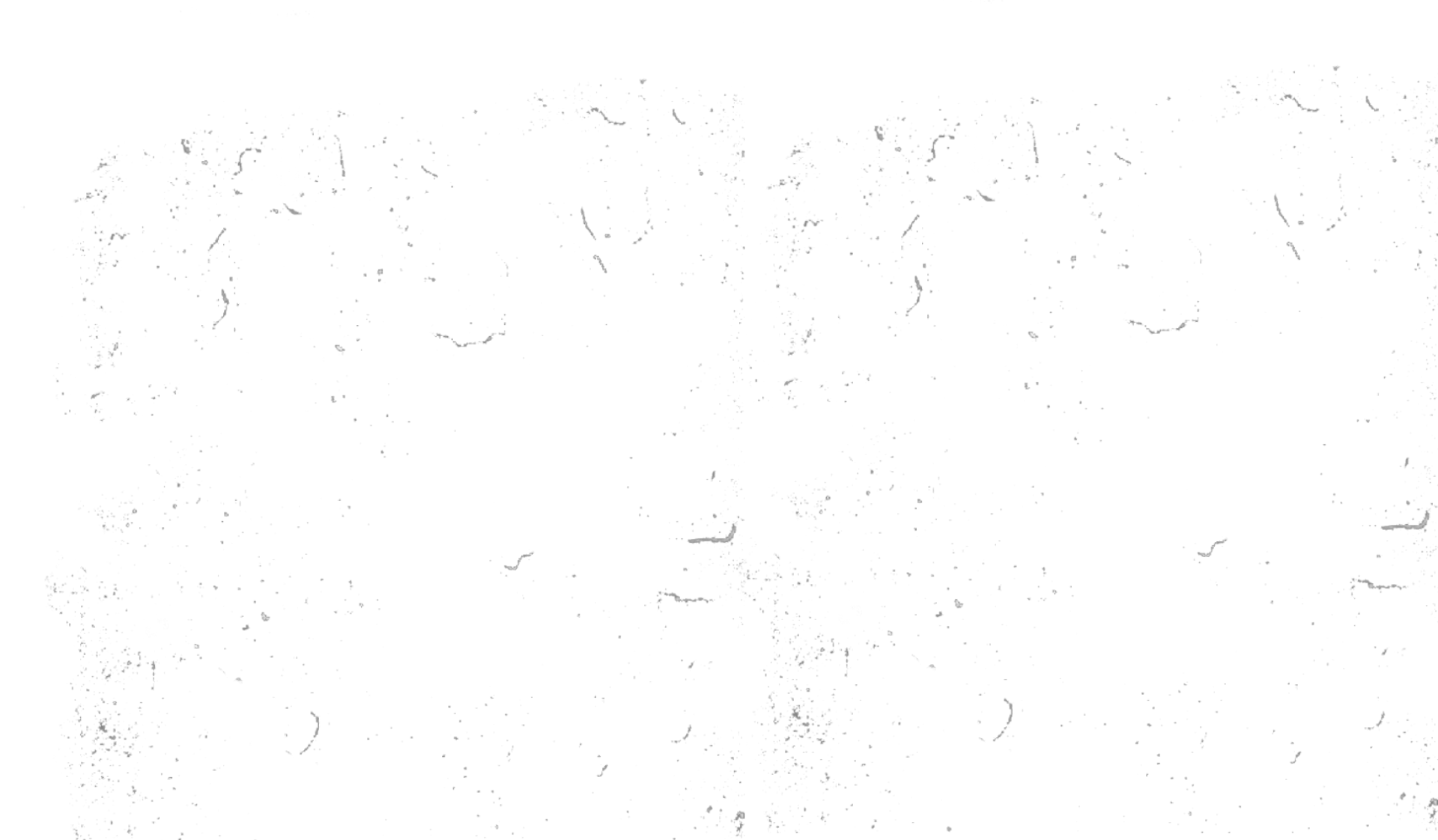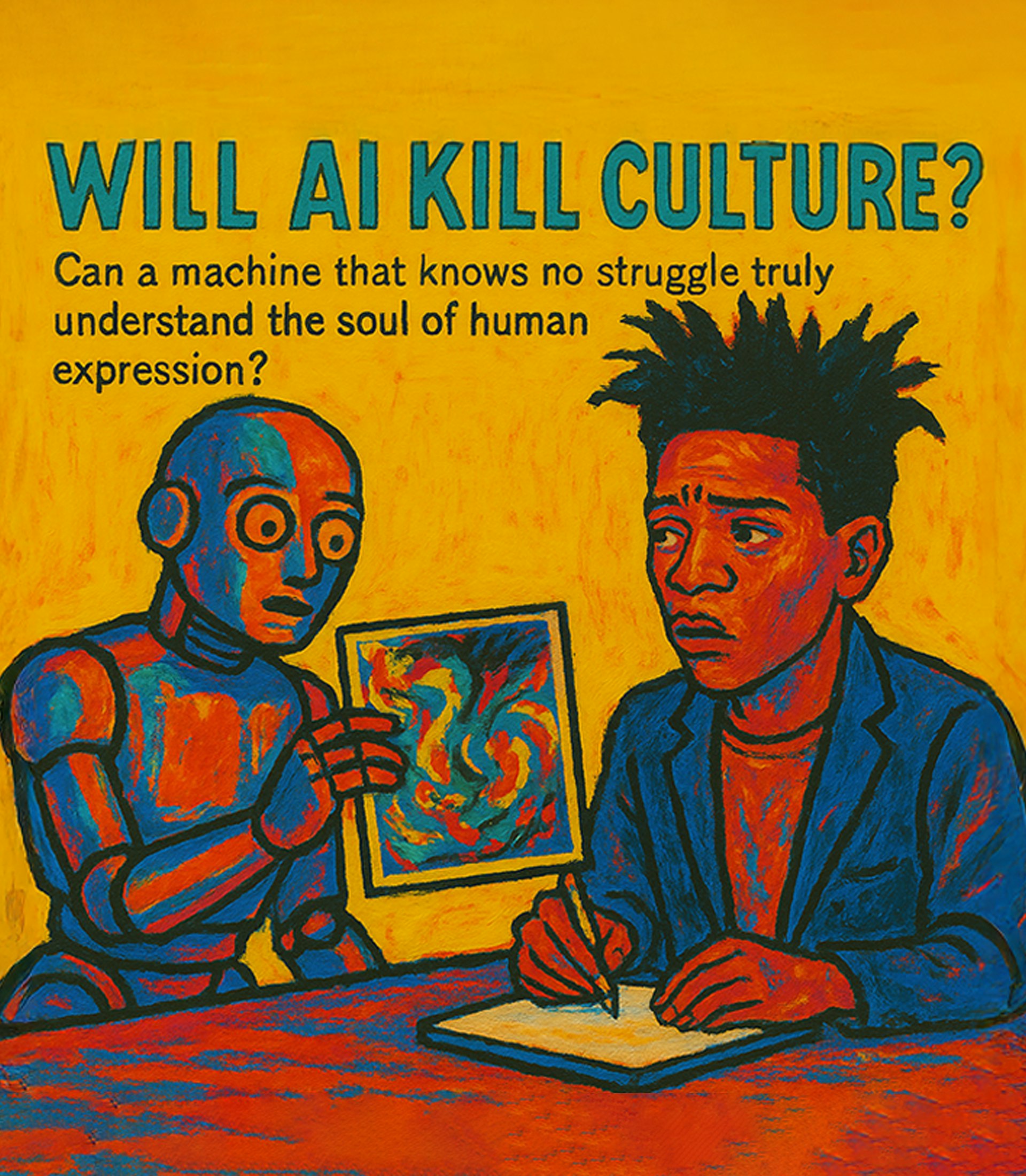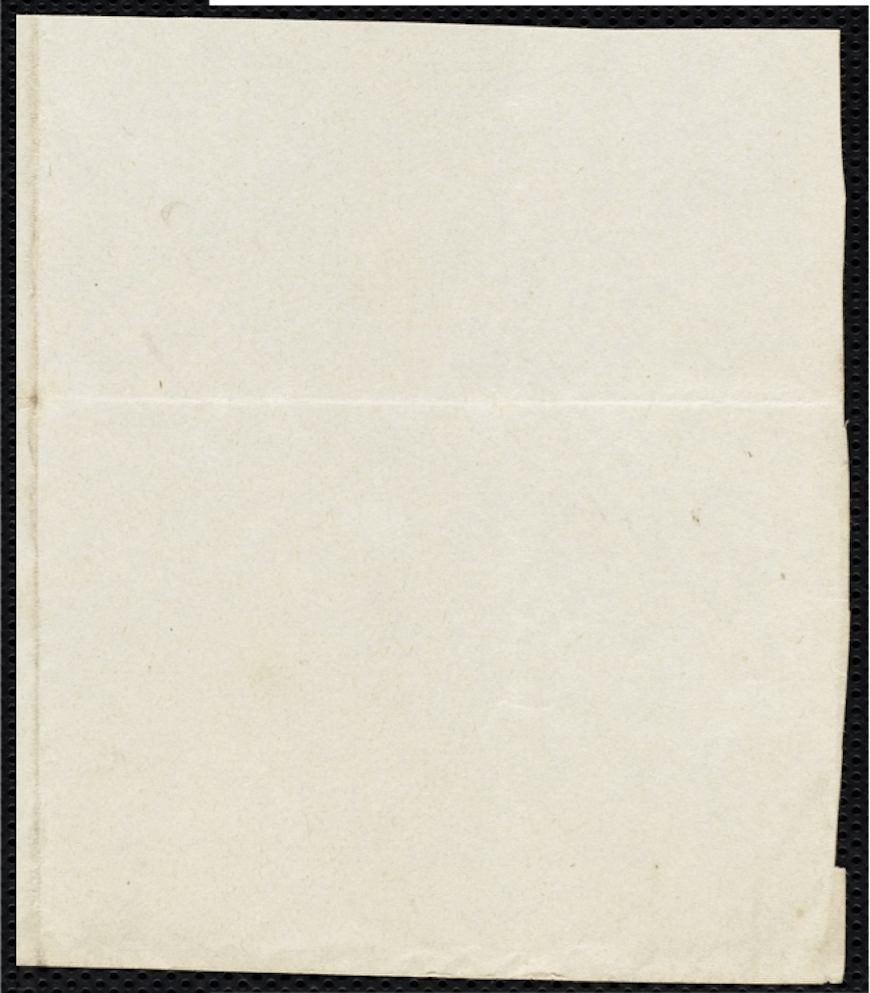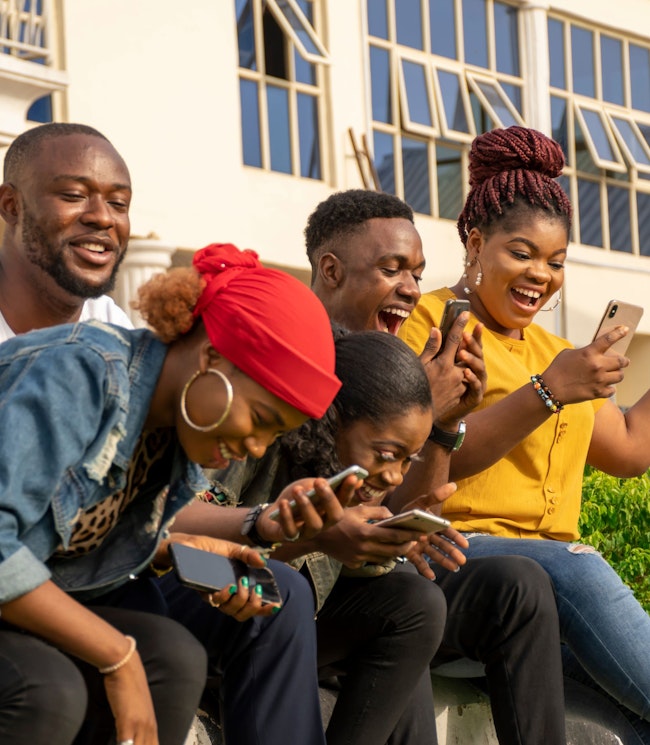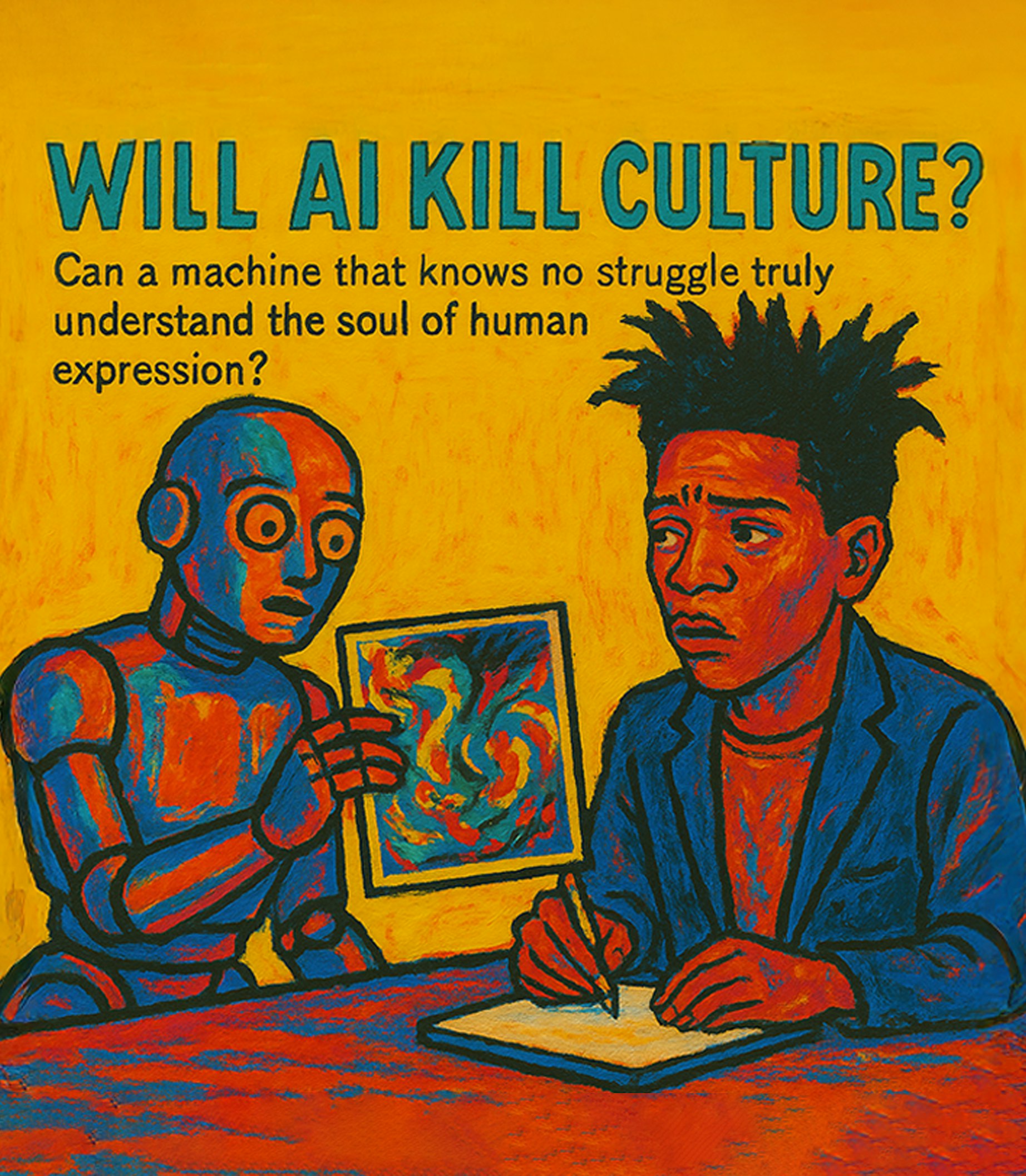
words by
Joe Anthony
May 07, 2025
culture hack
Will AI Kill Culture?
As artificial intelligence accelerates into every corner of modern life—from music to writing, fashion to film—many are asking: will AI kill culture? Beneath this provocative question lies a deeper concern about whether machines, no matter how advanced, can ever truly articulate cultural nuance. Culture is not data. It is lived experience. It is born from struggle, conflict, history, resistance, survival. So how can a tool, devoid of pain, joy, or context, ever hope to replicate something so deeply human?
Culture has never been a neutral artifact. It’s the byproduct of generations of artistic expression, often rooted in trauma or identity. The blues arose from the legacy of slavery. Hip-hop came from the marginalization of Black and Latino communities in the Bronx. Punk exploded from political disillusionment. None of these movements were born from a prompt; they came from pressure. AI, no matter how advanced, does not live under systems of oppression. It does not fight for visibility. It does not risk being misunderstood. Without struggle, can you have authenticity?
One of the central limitations of AI is its dependency on human input. If cultural trends emerge from external social forces—forces that are complex, contradictory, and often invisible—how can someone untouched by those forces provide the right input? Asking AI to replicate a cultural movement is like asking a mirror to invent a face. At best, it reflects what already exists. At worst, it distorts and flattens it.
There’s also the danger of homogenization. AI is trained on what already exists. It predicts patterns. It follows form. But culture doesn’t. The most meaningful cultural shifts often arise from breaking the mold, from rejecting what came before. Can an algorithm that’s designed to replicate the past ever give us the future? Or will it simply recycle trends, remixing them into soulless pastiche?
Yet, it would be naive to dismiss AI entirely. It can democratize access, allow new voices to emerge, and remix old tools in unexpected ways. But the danger lies in mistaking imitation for innovation. A song written by AI might sound right, but does it mean anything? Does it make you feel? Or does it just resemble feeling?
In the end, culture is not just about what is produced, but why it’s produced. If AI is to have a place in the cultural landscape, it must remain a tool—not a creator. It must be guided by human hands, human stories, human struggle. Because culture doesn’t come from convenience or efficiency. It comes from necessity. And necessity can’t be generated.
So, will AI kill culture? Probably not. But it may confuse us into accepting replicas in place of the real thing. The challenge is not to stop AI, but to remember what makes culture worth preserving in the first place: the messy, human, imperfect beauty of it all.

